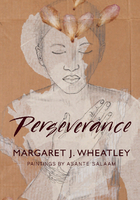This reason did not satisfy me, and when I had taken my chocolate with the abbe, an intelligent and venerable old man, I asked him why the chapel in question had lost its reputation.
He burst out laughing, and replied,--
"Excuse me, I really cannot tell you. Go and see for yourself; your curiosity will soon be satisfied."
As soon as I left him I went to the chapel, and the state of the picture told me all. The breast of the Virgin had disappeared under a kerchief which some profane brush had dared to paint over it. The beautiful picture was spoilt; the magic and fascination had disappeared. Even the teat had been painted out; the Child held on to nothing, and the head of the Virgin no longer appeared natural.
This disaster had taken place at the end of the Carnival of 1768. The old chaplain died, and the Vandal who succeeded him pronounced the painting to be a scandalous one, and robbed it of all its charm.
He may have been in the right as a fool, but as a Christian and a Spaniard he was certainly in the wrong, and he was probably soon convinced of the mistake he had made by the diminution in the offerings of the faithful.
My interest in the study of human nature made me call on this priest, whom I expected to find a stupid old man.
I went one morning, but instead of being old, the priest was an active, clever-looking man of thirty, who immediately offered me chocolate with the best grace imaginable. I refused, as was my duty as a stranger, and indeed the Spaniards offer visitors chocolate so frequently at all hours, that if one accepted it all one would be choked.
I lost no time in exordiums, but came to the point at once, by saying that as a lover of paintings I had been grieved at finding the magnificent Madonna spoilt.
"Very likely," he replied, "but it was exactly the physical beauty of the picture that rendered it in my eyes unfit to represent one whose aspect should purify and purge the senses, instead of exciting them. Let all the pictures in the world be destroyed, if they be found to have caused the commission of one mortal sin."
"Who allowed you to commit this mutilation? The Venetian State Inquisitors, even M. Barberigo, though he is a devout man, would have put you under the Leads for such a deed. The love of Paradise should not be allowed to interfere with the fine arts, and I am sure that St. Luke himself (who was a painter, as you know) would condemn you if he could come to life again."
"Sir, I needed no one's leave or license. I have to say mass at that altar every day, and I am not ashamed to tell you that I was unable to consecrate. You are a man and a Christian, you can excuse my weakness.
That voluptuous picture drew away my thoughts from holy things."
"Who obliged you to look at it?"
"I did not look at it; the devil, the enemy of God, made me see it in spite of myself."
"Then you should have mutilated yourself like Origen. Your generative organs, believe me, are not so valuable as the picture you have ruined."
"Sir, you insult me."
"Not at all, I have no intention of doing so."
That young priest shewed me the door with such brusqueness that I felt sure he would inform against me to the Inquisition. I knew he would have no difficulty in finding out my name, so I resolved to be beforehand with him.
Both my fear and my resolve were inspired by an incident which I shall mention as an episode.
A few days before, I had met a Frenchman named Segur, who had just come out of the prisons of the Inquisition. He had been shut up for three years for committing the following crime:
In the hall of his house there was a fountain, composed of a marble basin and the statue of a naked child, who discharged the water in the same way as the well-known statue of Brussels, that is to say, by his virile member. The child might be a Cupid or an Infant Jesus, as you pleased, but the sculptor had adorned the head with a kind of aureole; and so the fanatics declared that it was a mocking of God.
Poor Segur was accused of impiety, and the Inquisition dealt with him accordingly.
I felt that my fault might be adjudged as great as Segur's, and not caring to run the risk of a like punishment I called on the bishop, who held the office of Grand Inquisitor, and told him word for word the conversation I had had with the iconoclast chaplain. I ended by craving pardon, if I had offended the chaplain, as I was a good Christian, and orthodox on all points.
I had never expected to find the Grand Inquisitor of Madrid a kindly and intelligent, though ill-favoured, prelate; but so it was, and he did nothing but laugh from the beginning to the end of my story, for he would not let me call it a confession.
"The chaplain," he said, "is himself blameworthy and unfit for his position, in that he has adjudged others to be as weak as himself; in fact, he has committed a wrong against religion. Nevertheless, my dear son, it was not wise of you to go and irritate him."
As I had told him my name he shewed me, smilingly, an accusation against me, drawn up by someone who had witnessed the fact. The good bishop gently chid me for having called the friar-confessor of the Duke of Medina an ignoramus. He had refused to admit that a priest might say mass a second time on a high festival, after breaking his fast, on the command of his sovereign prince, who, by the hypothesis, had not heard mass before.
"You were quite right in your contention," said the Inquisitor, "but yet every truth is not good to utter, and it was wrong to call the man an ignoramus in his presence. For the future you would do well to avoid all idle discussion on religious matters, both on dogma and discipline. And I must also tell you, in order that you may not leave Spain with any harsh ideas on the Inquisition, that the priest who affixed your name to the church-door amongst the excommunicated has been severely reprimanded.
He ought to have given you a fatherly admonition, and, above all, enquired as to your health, as we know that you were seriously ill at the time."
Thereupon I knelt down and kissed his hand, and went my way, well pleased with my call.















